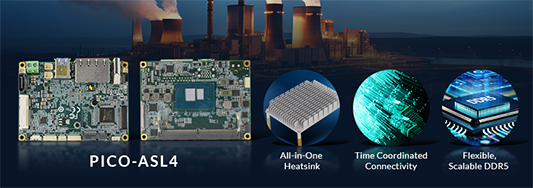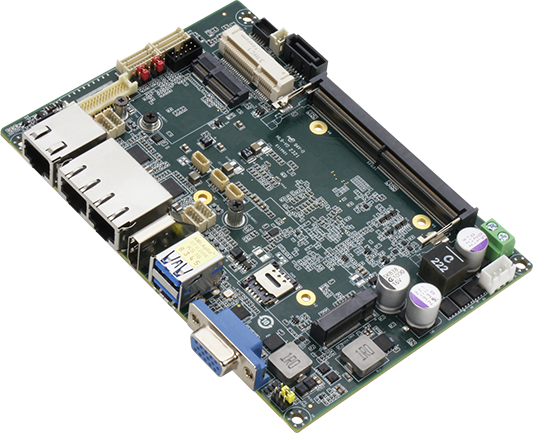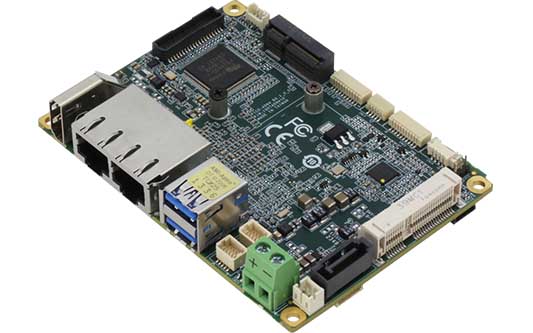Taipei, Taiwan – Embedded computing pioneer AAEON has launched the PICO-ASL4 and GENE-ASL6, both featuring the new Intel Atom® x7000RE Processor Series for the Edge (formerly Amston Lake).

Both the 2.5” PICO-ITX and 3.5” SubCompact Board go to market with models equipped with Intel Atom® x7433RE and Intel Atom® x7835RE, while the GENE-ASL6 will also have the adoption of the Intel Atom® x7213RE Processor, with all three maxing out at 12W.
Built on the standard 100mm x 72mm PICO-ITX form factor, the PICO-ASL4 offers extensive onboard options, including dual LAN and six USB ports, along with Intel® Time Coordinated Computing and Time-Sensitive Networking (TSN). As a result, AAEON has identified this compact solution as an ideal choice for those seeking a discreet single-board computer capable of managing latency-sensitive workloads in fields such as smart transportation and manufacturing.
The PICO-ASL4 showcases innovative design by eliminating the product line’s standard heat spreader and instead employing a slim, all-in-one heatsink. This change results in a more low-profile board while still maintaining a default temperature tolerance range of -40°C to 85°C. Additionally, the PICO-ASL4 distinguishes itself from previous models with its SODIMM-based system memory, which supports up to 16GB of DDR5.

Despite its extensive temperature range and thermal design modifications, the PICO-ASL4 maintains a fully functional I/O, featuring dual LAN ports (both 2.5GbE and 1GbE), dual USB 3.2 Gen 2 ports, and an HDMI 1.4 port. The board’s internal connectors provide access to serial communication through four COM port headers, a 4-bit GPIO, and SMBus/I2C. Enhancing its display capabilities are LVDS and optional eDP 1.4, granting users two simultaneous displays.
While the PICO-ASL4 shows promise in the smart transportation and manufacturing sectors, the GENE-ASL6 is specifically designed for edge gateway and digital signage applications. This board supports three simultaneous displays via its HDMI, VGA, and LVDS interfaces, and it includes audio functionality with Line-In, Line-Out, and microphone options. This combination also paves the way for potential smart kiosk deployments, where the GENE-ASL6’s optional TPM 2.0 and CPU-native encryption and decryption optimizations would provide significant advantages.
For edge device applications, the GENE-ASL6 features three LAN ports, each operating at 2.5 GbE. It also supports advanced serial communication through four COM connectors (two RS-232/422/485 and two RS-232), an 8-bit GPIO, and SMBus/I2C. Additionally, the board offers an impressive array of expansion options, including an M.2 2230 E-Key, an M.2 3052 B-Key, a Nano SIM card slot, and a full-size mSATA/mPCIe slot. These options facilitate the integration of wireless communication modules for Wi-Fi and 5G, as well as high-speed storage solutions.
Much like its counterpart, the GENE-ASL6 sees schematic innovation with a solder-side design, which allows for higher component density without compromising signal integrity or causing mechanical stress via optimized fanless heat dissipation, granting it a broad operating temperature of -40°C to 85°C.
Both the PICO-ASL4 and GENE-ASL6 are now available for pre-order on the eShop, while detailed specifications for both can be found on their respective product pages on the AAEON website.












